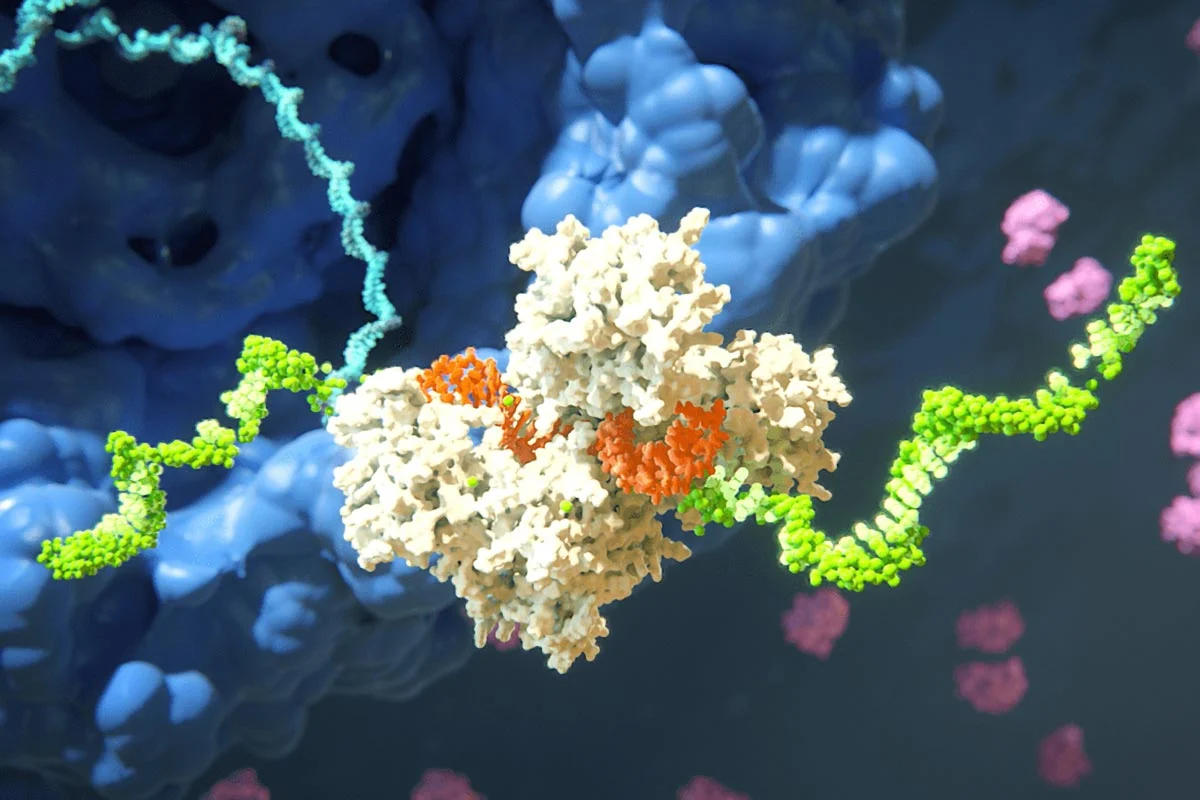Harnessing the RNAi is the tool for next-generation genetic experiments.
"Alnylam Pharmaceuticals is translating the promise of RNA interference (RNAi) research into a new class of powerful, gene-based therapies. In this rendering, the green strand is the targeted mRNA, and the white object is the RNA-induced silencing complex (RISC) that can prevent the expression of the target mRNA’s proteins. The orange strand is RNAi. Credit: Courtesy of Alnylam Pharmaceuticals" (ScitechDaily, Harnessing RNAi: Alnylam’s Path From Lab Discovery to Life-Changing Treatments)
Harnessing RNA interference (RNAi) is the tool that makes next-generation, life-changing treatments possible. The other names for RNAi are co-suppression and post-transcriptional gene silencing (PTGS). And quelling. That thing makes it possible to turn genome silence like a programmer sometimes "kills code" in computer coding. RNAi is one of the most effective tools for genetic engineering.
The idea of the RNAi is simple. The outside RNA will intervene in the genomes if there are some kind of genetic disorders. The RNAi can turn the genomes silent. That thing can make it possible to control the genomes, and that offers the possibility to gene new treatments for diseases like Parkinson's and schizophrenia. In that case, the system just makes those genomes silent.
And genetic coding. If the medicine can turn the cancer genomes silent, that thing should remove cancer cells. The ability to turn genomes silent is one of the most interesting tools. And that is a good thing to control biological systems that produce things like medicines. The genetic code is the thing that orders cells to make things. When researchers transplant RNA into cells they reprogram it. If those cells produce some kind of antibodies, there must be something. That controls the process. By switching genomes on and off the system can control the antibody production.
Theoretically, a werewolf can be a species that can turn human genomes silent. Or it can turn wolf genomes silent. That makes it possible to transform a human into a wolf or a wolf into a human.
Theoretically, RNAi makes it possible to transform one species into another in a very short moment. In that model, the DNA of the species involves data of two species. When that species wants to transform into another, that requires that the species can turn the other species' genomes silent.
If a human wants to transform themselves into wolves. Or wolves into humans.
That species's genomes must involve both species' information. Then if the human wants to transform into a wolf, the system must just turn human genomes silent. And if the wolf wants to transform back into a human, the system must turn wolf genomes silent.
https://scitechdaily.com/harnessing-rnai-alnylams-path-from-lab-discovery-to-life-changing-treatments/
https://en.wikipedia.org/wiki/Gene_knockdown
https://en.wikipedia.org/wiki/Gene_silencing
https://en.wikipedia.org/wiki/RNA_interference
https://en.wikipedia.org/wiki/Transcription_(biology)

Comments
Post a Comment